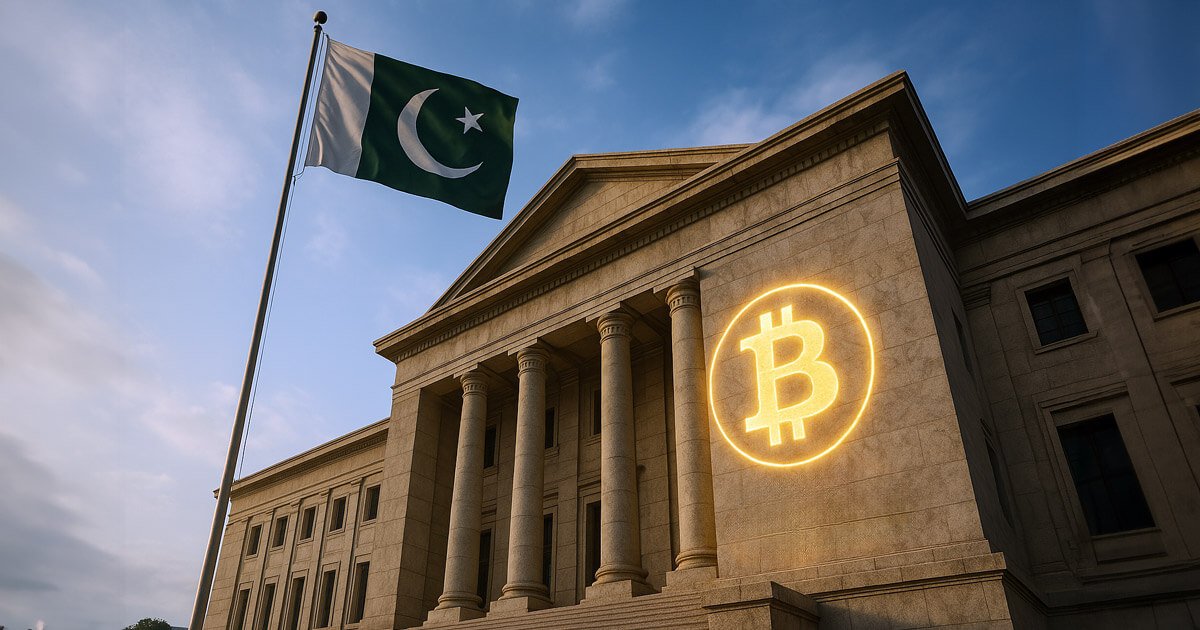The global financial order is experiencing a massive transformation due to the widespread adoption of blockchain technology by individuals and institutions. Blockchain technology is essential for the operation of digital assets and decentralized finance (DeFi). It assists in protection and decentralized transfer and facilitates their creation.
Digital assets and DeFi are the foundation for ensuring borrowing, trading, and lending in the absence of intermediaries. This breakthrough has the potential to revolutionize various industrial sectors like real estate, finance, and entertainment in their financial activities.
Pakistan’s prioritizing of crypto diplomacy is part of a larger plan to align with the US administration, which is adopting pro-crypto policies under the Trump administration. A turning point in the nation’s financial diplomacy has been reached with the signing of a letter of intent with Trump-backed World Liberty Financial (WLF) and the inclusion of Changpeng Zhao (CZ), the founder of Binance, on an advisory board.
It provides Islamabad with an exceptional chance to strengthen bilateral ties and establish a close relationship with the White House through crypto diplomacy.
The cryptocurrency market in Pakistan is booming. According to statistics, Pakistan is likely to generate approximately $1.6 billion in revenue from cryptocurrency by this year. Similarly, the number of cryptocurrency users is estimated to reach 27.10 million. Pakistan’s policy-making perspective has transformed from an opaque policy and cautious skepticism towards crypto to a welcoming stance.
Read More: Crypto Minister Envisions Pakistan Leading Global South in Digital Assets
The CEO of the Pakistan Crypto Council (PCC) and advisor to the Prime Minister for Crypto and Blockchain, Bilal Bin Saqib, has surprised the observers both domestically and internationally. He announced the establishment of the government’s first strategic Bitcoin reserve during a tour of the United States focused on attracting investment in Pakistan’s cryptocurrency markets. According to him, the government also plans to allocate a surplus of 2000 megawatts of electricity for bitcoin mining and AI data centers.
Approximately 0.21 percent of the world’s electricity is utilized by Bitcoin farms. In 2021, Bitcoin accounted for nearly 95.68 terawatt-hours (TWh) of consumption, which is approximately 85% of Pakistan’s total electricity usage. Miners typically spend almost 60% to 80% of their revenue to cover electricity costs.
The finance division has stressed that Pakistan should “monetize surplus electricity, create high-tech jobs, attract billions of dollars in foreign direct investment, and generate billions of dollars for the government.”
The Pakistani government has been formally asked by the International Monetary Fund (IMF) to provide clarification on its stance regarding the use of public electricity for cryptocurrency-related purposes. Consequently, this request has heightened the concerns about whether this sector truly deserves access to receive this surplus amount of electricity amid the country’s energy crisis.
The usage of Pakistan’s surplus of electricity has been hindered by persistent transmission bottlenecks, which prevent the government from utilizing it efficiently. Utilising this energy for Bitcoin mining could significantly create digital assets that could increase foreign reserves.
Ethiopia proved the potential of combining cutting-edge technology with sustainable energy by utilizing hydropower to mine bitcoin in 2024, generating an unprecedented $1 billion in revenue. In Pakistan, industrial electricity costs approximately 22 cents per kWh, which is ten times higher than in mining markets around the globe, such as Kuwait, China, and Iran, where costs are below two cents.
Read More: In a First, Pakistan Unveils State-Backed Bitcoin Reserve
The Pakistani government must reach a target rate of $0.04 per unit if it wants to bring in mining investment, but this could be challenging to establish and maintain given the International Monetary Fund’s (IMF) constraints.
The government seems to be at a critical juncture; on the one hand, the State Bank of Pakistan (SBP) and other financial institutions maintain that no digital assets or their transactions are legal, while simultaneously promoting crypto initiatives and seeking investments in the crypto market, which has raised several critical questions, though. The SBP recently clarified that cryptocurrencies are not illegal despite heightened concerns about the absence of a legal framework.
To avoid the risk of being added back on the grey list, a legal framework that complies with the Financial Action Task Force (FATF) is required. Pakistan’s inclusion on the FATF’s grey list denoted a lack of anti-money laundering (AML) measures and a failure to eradicate the funding of terrorism. It is challenging to obtain financial services and draw in foreign investment when one is on the grey list.
The Pakistan Crypto Council (PCC) must establish a legal framework that can ensure comprehensive financial accountability so that Pakistan’s crypto sector does not become a hub of illicit financial flows. Aligning a legal framework with the standards of the Financial Action Task Force (FATF) would foster investors’ confidence in Pakistan’s mining market from all over the world. Pakistan can learn from the example of El Salvador’s efforts to legalize Bitcoin, which have resulted in reduced reliance on the US dollar and improved financial inclusion.
Similarly, India has classified crypto as taxable rather than banning it outright, despite the government’s decision to impose a 30% tax on digital asset gains. The crypto market in India falls under the regulatory realm and remains active in attracting investments in the mining sector. Lastly, the Switzerland model of the Financial Market Supervisory Authority (FINMA) is seeking global funding and encourages blockchain startups through investor safeguards and transparent guidelines.
Yasir Khan Kakar
Yasir Khan Kakar is a student of International Relations at Air University, Islamabad, and is currently associated with the Islamabad Policy Research Institute (IPRI).



